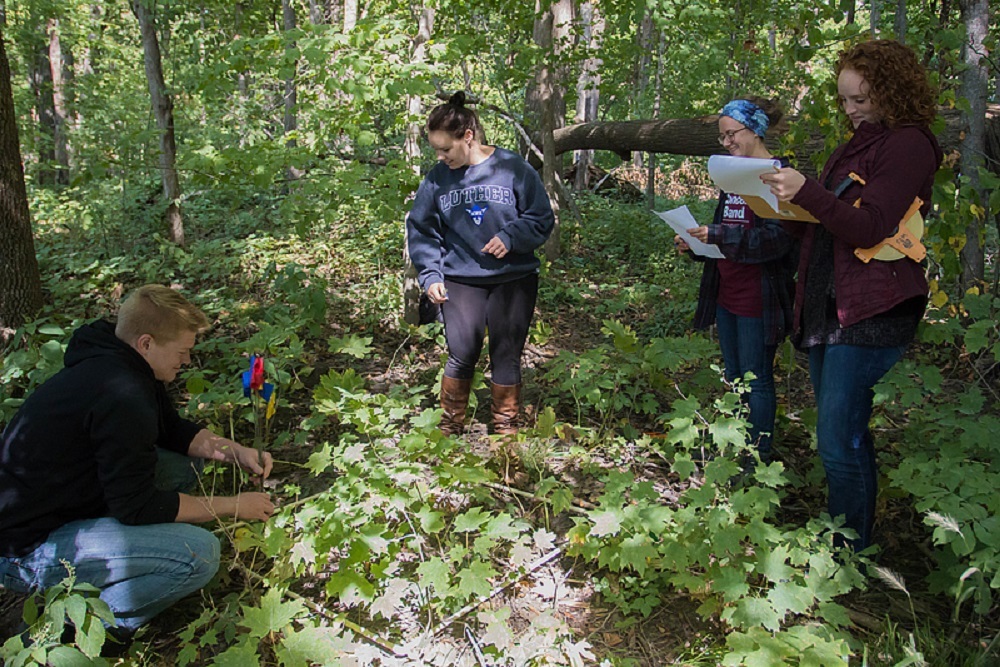Source: Luther College Lutheran Church
Source: Luther College Lutheran Church
Luther College Lutheran Church issued the following announcement on July 21.
I am many things (daughter, sister, spouse, friend of dogs, and garlic mustard destroyer), but one of my professional roles is that of a plant ecologist. At its broadest, the work of an ecologist is to discern the factors that determine the abundance and distribution of species. As a plant ecologist, I seek to understand how and why plant species occur where they do, and what factors have influenced changes in their distribution and abundance over time. It may be a bit surprising, then, that I also teach a class about the ecology of emerging infectious diseases of humans.
Or maybe not. Infectious diseases are caused by pathogens (typically viruses, bacteria, or protists). Humans share these pathogens with other animal species, including livestock and wild animals such as bats, songbirds, and rodents. And, still other animals, typically invertebrates such as ticks and mosquitoes, are vectors that transport the pathogens between animal hosts to humans. Humans are enmeshed in an ecological web of interactions among hosts and vectors that has direct relevance to our health.
I became interested in emerging infectious diseases (EIDs) such as Lyme disease, bird flu, Zika virus, and Ebola when I learned that the emergence (and reemergence) of these diseases has accelerated over the past several decades, and that the majority of them are zoonoses, that is, diseases with an animal host. These facts suggested a link between human health and my interest in ecological systems. An excellent book by David Quammen, Spillover, provided me with a fascinating and somewhat fear-inducing introduction to the topic, and thanks to a research fellowship from the Center for Ethics and Public Engagement, I was able to spend several months digging into the scientific literature to learn more. As a result, a class for biology students about the ecology of emerging infectious diseases was born.
It turns out that one particularly clever and abundant species, Homo sapiens, has more or less created the conditions necessary for new infectious diseases to emerge; many epidemiologists are surprised that something like the Covid-19 pandemic of 2020 didn’t occur sooner. The human population has relentlessly increased its demands from the earth’s ecosystems. Intensive agriculture, mining, logging, and urban sprawl destroy wildlife habitat, forcing humans and some animal species into closer contact, and causing the loss of other species. Hunting, trade, and consumption of wildlife also increase the chances of pathogen spillover. In our class, the students and I examine the ways in which human-caused environmental changes, including habitat loss, urbanization, climate change, and nutrient pollution are linked to the spillover and persistence of diseases in humans from animals.
For example, the large-scale destruction of natural habitat has facilitated the recent emergence of two completely unrelated diseases: Lyme disease in eastern North America and Ebola in central Africa. While these diseases involve entirely different pathogens (a bacterial species for Lyme disease, and a virus for Ebola), modes of transmission, and outcomes, they share one thing in common: both, appear to be linked to habitat loss, which has, in turn, affected the distribution and abundance of the wildlife hosts of Lyme disease and Ebola. In both cases, more frequent contact between humans and the primary host species (white-footed mice for Lyme disease, and probably fruit bats for Ebola) appears to have contributed to the emergence of the disease in humans.
It remains to be seen what caused the emergence of the novel coronavirus and the current Covid-19 pandemic. What epidemiologists and also the students who have taken my class do know is that this is not the first, nor will it be the last, deadly new disease to emerge in the human population, and that the factors causing diseases to spillover are complex and difficult to untangle. Predicting and responding to future EIDs will require teams of people with a variety of skills and knowledge, including epidemiologists, microbiologists, ecologists, veterinarians, economists, and anthropologists. Luther College graduates who are curious, compassionate, and have a broad background in biology and the liberal arts will be well-equipped to contribute to such teams.
About the author: Beth Lynch is Associate Professor in the Biology Department where she teaches a variety of courses including introductory biology, ecology, botany, winter biology, and a course about the ecology of emerging infectious diseases. She has a PhD in Ecology, Evolution, and Behavior from the University of Minnesota. Her research interests include using paleoecological methods to study the interactions among climate, fire, and forests and conservation of Midwestern forest ecosystems.
Original source: https://www.luther.edu/ideas-creations-blog/?story_id=914988




 Alerts Sign-up
Alerts Sign-up